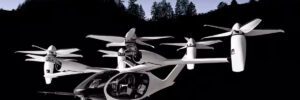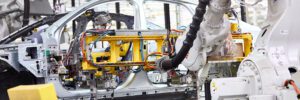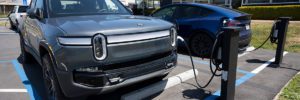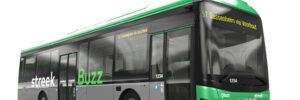Joby Aviation, a company developing electric vertical take-off and landing (eVTOL) aircraft for commercial passenger service, has announced a collaboration with Atlantic Aviation, a provider of aircraft ground handling and corporate flight support, to electrify aviation infrastructure in New York and Southern California, paving the way for the launch of Joby’s air taxi service.
The companies plan to deploy charging infrastructure based on Joby’s Global Electric Aviation Charging System (GEACS). Joby recently released the technical specs for GEACS, which incorporates cooling technology, and is designed for simultaneous recharging of multiple battery packs, and said it’s “working with numerous electric aircraft developers to ensure interoperability.”
Meanwhile, Joby rival Beta Technologies has already installed its multi-modal CCS-based charging system at 17 locations across the eastern US, and plans to install another 55 soon. Are we seeing the emergence of two competing standards for eVTOL charging?
Beta, which makes both eVTOL aircraft and equipment to charge them, recently sold several of its Charge Cube DC fast chargers to another eVTOL aircraft manufacturer, Archer Aviation.
Furthermore, Archer recently announced that it too is working with Atlantic Aviation, to install Beta’s CCS chargers in New York, California and Florida.
Atlantic, which supports aircraft operations at some 100 US airports, says it is technology-agnostic. “We are not here to pick a winner. We’re here to support a market,” Eric Newman, the company’s VP of Commercial Strategy and Sustainability, told Axios.
“Our core business is supporting aviation, in any form,” said John Redcay, Chief Commercial and Sustainability Officer at Atlantic, adding that his company provides different kinds of fuel to airplanes, depending on their needs, so there’s no reason it can’t support more than one EV charging standard.
Be that as it may, there are several good reasons to establish a single charging standard (see the ongoing brouhaha over CCS vs NACS). The CCS standard is widely used in earthbound EVs, including airport ground support equipment. A baker’s dozen of e-aviation firms (but not Joby) recently signed onto a report from the General Aviation Manufacturers Association (GAMA) endorsing CCS.
“Interoperability of chargers and infrastructure is critical to making urban air mobility a reality because it lowers costs for everybody, instead of favoring one player,” said Archer Chief Commercial Officer Nikhil Goel.
Sources: Joby Aviation, Archer Aviation, Axios
Source: Electric Vehicles Magazine






